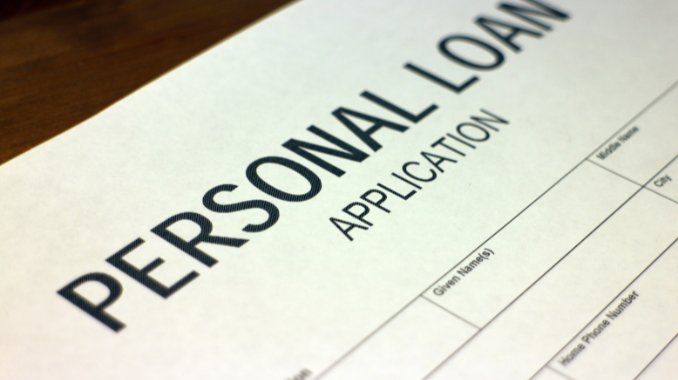
Personal Loans in New Zealand – In today’s fast-paced world, personal loans have become a popular financial solution for many New Zealanders seeking quick access to funds.
Whether it’s for consolidating debt, financing a dream vacation, or covering an unexpected expense, personal loans can provide much-needed financial support. In this comprehensive guide, we’ll discuss everything you need to know about personal loans in New Zealand, from the types available to the factors you should consider before applying.
Understanding Personal Loans
Personal loans are a type of unsecured loan, meaning they do not require collateral as security. Borrowers can use personal loans for various purposes, such as home improvements, medical bills, or even debt consolidation.
Typically, personal loans have fixed interest rates and repayment terms, making it easy for borrowers to plan their monthly payments and budget accordingly.
Types of Personal Loans in New Zealand
There are several types of personal loans available in New Zealand, catering to a wide range of borrower needs. These include:
- Unsecured Personal Loans: As mentioned earlier, unsecured personal loans do not require collateral, making them a popular choice for many borrowers. These loans often come with higher interest rates due to the increased risk for the lender.
- Secured Personal Loans: Secured personal loans require borrowers to provide collateral, such as a vehicle or property, as security. This reduces the lender’s risk and typically results in lower interest rates for borrowers.
- Debt Consolidation Loans: These loans are specifically designed to help borrowers consolidate their high-interest debts into a single, more manageable loan with a lower interest rate.
- Peer-to-Peer (P2P) Loans: P2P loans connect borrowers directly with individual investors through online platforms. By bypassing traditional financial institutions, P2P loans often offer competitive interest rates and a more streamlined application process.
Factors to Consider Before Applying for a Personal Loan
Before applying for a personal loan in New Zealand, consider the following factors to make an informed decision:
- Interest Rates: Interest rates play a significant role in determining the overall cost of your loan. Compare rates from different lenders to ensure you get the most competitive deal. Keep in mind that factors such as your credit score, loan amount, and repayment term can impact the interest rate you’re offered.
- Loan Term: The loan term, or the length of time you have to repay the loan, can significantly affect your monthly payments and the total interest you’ll pay. While a longer-term can lower your monthly payments, it often results in higher overall interest costs.
- Fees and Charges: Some lenders charge fees for services like loan origination, early repayment, or late payments. Make sure to understand any fees associated with a personal loan before committing to a lender.
- Your Credit Score: A good credit score can increase your chances of being approved for a personal loan and securing a lower interest rate. If your credit score is less than ideal, consider taking steps to improve it before applying for a loan.
- Affordability: Evaluate your current financial situation and ensure you can comfortably afford the monthly repayments before taking out a personal loan. Overextending yourself financially can lead to long-term consequences, such as late payments or defaulting on the loan.

Applying for a Personal Loan in New Zealand
Once you’ve considered the factors above and have a clear understanding of your financial needs, follow these steps to apply for a personal loan in New Zealand:
- Compare Lenders: Research and compare different lenders to find one that offers a loan product suited to your needs. Look for competitive interest rates, reasonable fees, and flexible repayment terms.
- Gather Documentation: Prepare necessary documentation, such as proof of income, identification,and bank statements. Having these documents ready can expedite the application process and improve your chances of approval.
- Check Your Credit Score: Obtain a copy of your credit report to ensure there are no errors or discrepancies that could negatively impact your loan application. If you find any issues, take the necessary steps to resolve them before applying.
- Apply for the Loan: Submit your loan application with the chosen lender, either online or in-person. Be sure to provide accurate and complete information to avoid any delays in the approval process.
- Review the Loan Offer: If your application is approved, review the loan offer carefully. Ensure you fully understand the interest rate, repayment terms, and any associated fees before accepting the offer.
- Sign the Loan Agreement: Once you’re satisfied with the loan offer, sign the loan agreement and return it to the lender. The lender will then disburse the funds, typically within a few business days.
Tips for Managing Your Personal Loan
- After obtaining a personal loan, it’s essential to manage it responsibly to avoid any financial setbacks. Here are some tips to help you stay on track:
- Create a Budget: Establish a monthly budget that accounts for your loan repayments, as well as other essential expenses. This will help you stay organized and ensure you can comfortably manage your financial commitments.
- Make Timely Payments: Always make your loan repayments on time to maintain a positive credit history and avoid late payment fees. Set up automatic payments or calendar reminders to help you stay on schedule.
- Pay Extra When Possible: If you can afford to pay more than the minimum repayment amount, doing so can reduce the overall interest you pay and help you pay off the loan faster. Check with your lender to ensure there are no prepayment penalties before making additional payments.
- Monitor Your Credit: Regularly check your credit report to track your progress and ensure your loan repayments are being reported accurately.
- Build an Emergency Fund: Set aside a portion of your income each month to create an emergency fund. This can provide a financial safety net in case of unexpected expenses or changes in your circumstances, reducing the need to rely on additional loans in the future.
Alternatives to Personal Loans
Personal loans in New Zealand can provide a valuable financial resource for individuals in need of funds for various purposes. By understanding the different types of loans available, considering essential factors before applying, and managing your loan responsibly, you can successfully navigate the world of personal loans and achieve your financial goals.
Before taking out a personal loan, it’s worth considering other financing options that might better suit your needs or offer more favorable terms. Some alternatives to personal loans include:
- Credit Cards: For smaller expenses or short-term financing needs, a credit card can be a more flexible option. Many credit cards offer interest-free periods, allowing you to pay off your balance without incurring interest, as long as you pay it off within the specified time frame. However, credit cards can have high interest rates if you don’t pay off the balance within the interest-free period, so use them responsibly.
- Overdrafts: An overdraft facility linked to your bank account can provide access to additional funds when needed. Overdrafts can be helpful for covering unexpected expenses, but they can also come with fees and interest charges. Make sure to compare the costs of an overdraft with those of a personal loan before deciding which option is right for you.
- Home Equity Loans or Lines of Credit: If you’re a homeowner with equity in your property, you may be able to secure a home equity loan or line of credit at a lower interest rate than a personal loan. However, keep in mind that these options use your home as collateral, meaning you could risk losing your property if you’re unable to make repayments.
- Borrowing from Family or Friends: In some cases, borrowing money from family or friends can be a more affordable and flexible alternative to a personal loan. However, mixing finances with personal relationships can be risky and may lead to conflicts if not handled carefully. Make sure to establish clear terms and a repayment plan to avoid any misunderstandings or resentment.

Understanding Responsible Borrowing
- Regardless of the financing option you choose, it’s crucial to practice responsible borrowing to maintain your financial stability and protect your credit score. Here are some guidelines for responsible borrowing:
- Borrow Only What You Need: Avoid the temptation to borrow more than necessary, as this can lead to increased debt and difficulty managing repayments.
- Assess Your Ability to Repay: Before taking out any loan, ensure you have a realistic plan to repay the borrowed amount, including interest and fees, within the agreed-upon timeframe.
- Read the Fine Print: Always read the loan agreement and understand the terms and conditions, including interest rates, fees, and repayment terms, before signing any documents.
- Seek Professional Advice: If you’re unsure about your borrowing options or need help managing your finances, consider seeking advice from a financial advisor or credit counselor.
Navigating personal loans in New Zealand can be a complex process, but by understanding the different types of loans available, evaluating your financial needs, and considering alternative financing options, you can make informed decisions and choose the best solution for your circumstances. Remember to practice responsible borrowing and manage your loan repayments diligently to maintain a healthy financial future.
Frequently Asked Questions About Personal Loans in New Zealand
As you explore personal loans in New Zealand, you may have questions about the application process, eligibility, and more. Here are some frequently asked questions to help clarify common concerns:
- Can I apply for a personal loan with bad credit?
While having a good credit score improves your chances of securing a personal loan at a competitive interest rate, some lenders in New Zealand cater to borrowers with less-than-perfect credit. However, you may face higher interest rates and stricter lending terms. It’s crucial to shop around and compare loan offers to find the best option for your circumstances.
- How quickly can I receive funds from a personal loan?
The time it takes to receive funds from a personal loan can vary depending on the lender and your individual circumstances. In general, once your application is approved and you’ve signed the loan agreement, you can expect to receive the funds within a few business days. Some lenders offer faster disbursement options, while others may take longer to process the loan.
- What happens if I can’t make a repayment on my personal loan?
If you’re unable to make a scheduled repayment on your personal loan, it’s essential to contact your lender as soon as possible to discuss your options. Depending on the lender and your circumstances, they may be able to offer a temporary payment arrangement, such as a reduced payment plan or a payment deferral. Keep in mind that late payments can negatively impact your credit score and may result in additional fees.
- Can I pay off my personal loan early?
Many lenders in New Zealand allow borrowers to pay off their personal loans early without penalty. However, some may charge an early repayment fee. Before taking out a personal loan, make sure to review the terms and conditions to understand any fees or restrictions associated with early repayment.
Personal loans in New Zealand can offer a valuable financial solution for a range of purposes, from debt consolidation to funding unexpected expenses.
By understanding the various types of personal loans available, considering alternative financing options, and asking the right questions, you can make informed decisions and choose the best loan product for your needs. Always practice responsible borrowing and communicate with your lender if you encounter any difficulties in repaying your loan to maintain a healthy financial future.

How to Improve Your Chances of Getting a Personal Loan in New Zealand
If you’re considering applying for a personal loan in New Zealand, there are several steps you can take to improve your chances of approval and secure a favorable interest rate. Here are some tips to help boost your loan application:
- Improve Your Credit Score: Your credit score is a significant factor in determining your eligibility for a personal loan and the interest rate you’re offered. To improve your credit score, make sure to pay your bills on time, reduce your debt, avoid applying for new credit too frequently, and maintain a healthy mix of credit accounts.
- Reduce Your Debt-to-Income Ratio: Lenders consider your debt-to-income ratio, which is the percentage of your monthly income used to pay off debt, when assessing your loan application. A lower debt-to-income ratio indicates a lower risk to the lender. To reduce your ratio, consider paying down existing debt before applying for a personal loan.
- Provide a Co-signer: If you have a poor credit history or limited credit experience, providing a co-signer with a strong credit score can increase your chances of approval. A co-signer agrees to be responsible for the loan if you default on the payments, reducing the risk for the lender.
- Apply for a Smaller Loan Amount: Requesting a smaller loan amount may improve your chances of approval, as lenders may perceive you as a lower risk borrower. Consider borrowing only what you need and avoid applying for loans that exceed your financial capacity.
- Research Lenders and Loan Options: Take the time to research different lenders and loan products in New Zealand to find one that best aligns with your financial needs and credit profile. Comparing loan offers can help you secure a competitive interest rate and improve your chances of approval.
Conclusion
By following these tips and making responsible financial decisions, you can improve your chances of getting a personal loan in New Zealand and secure favorable terms.
Remember that personal loans should be used responsibly and only when necessary to ensure your long-term financial stability and credit health. Carefully weigh your options and assess your ability to repay the loan before making any commitments, and maintain open communication with your lender to address any concerns or difficulties that may arise during the loan repayment process.



